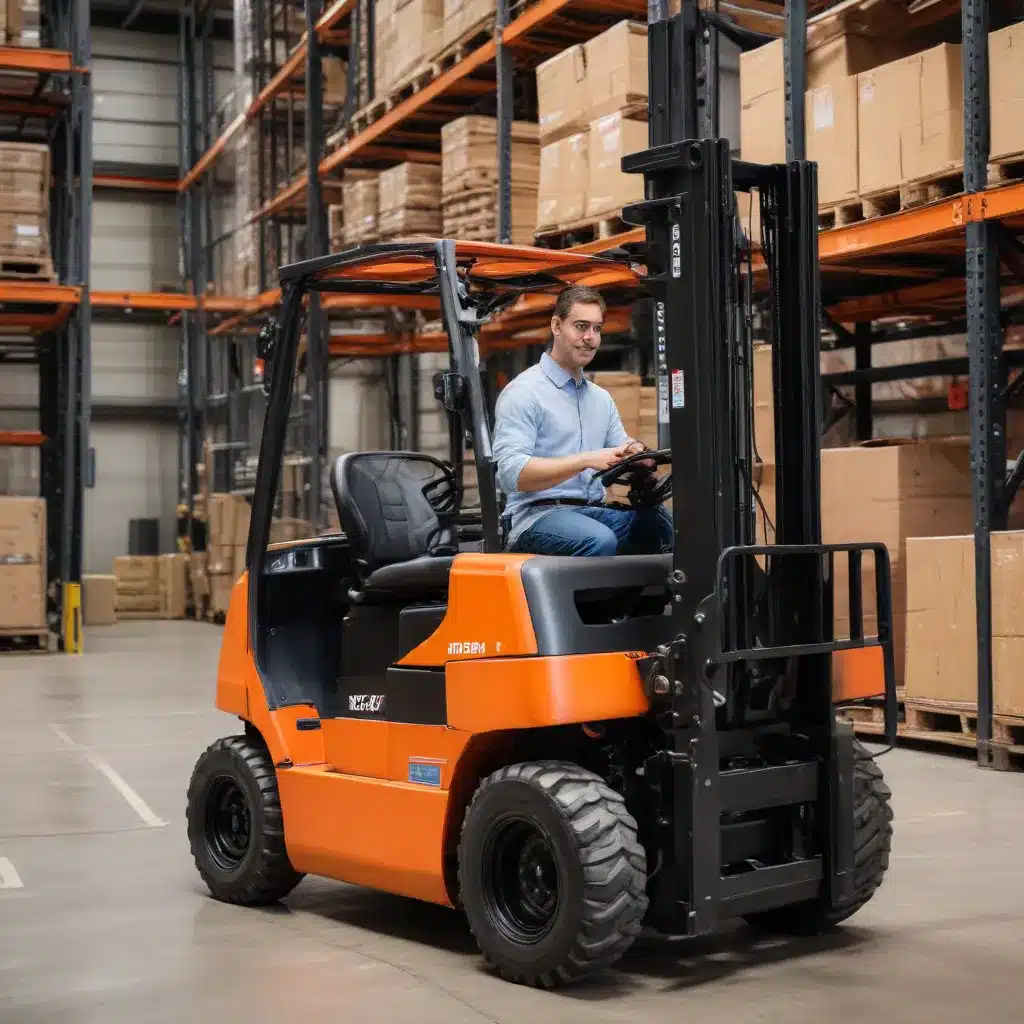
The Forklift Landscape: Navigating the Lease vs. Buy Decision
In the dynamic world of material handling and logistics, forklift acquisition has long been a crucial decision for businesses of all sizes. As an industry expert well-versed in the intricacies of forklift reviews, safety guidelines, and maintenance, I’m here to provide you with an in-depth exploration of the forklift leasing vs. buying dilemma and its implications for your workforce upskilling and continuous learning initiatives.
Forklift operations are the backbone of many warehousing, distribution, and manufacturing operations, and the choice between leasing or purchasing these essential assets can have far-reaching consequences for your organization. Understanding the nuances of this decision can unlock new opportunities for optimizing your material handling processes, enhancing workforce development, and driving sustainable growth.
Forklift Leasing: Empowering Workforce Flexibility and Adaptability
Leasing a forklift fleet can offer a range of advantages that align with the evolving needs of modern businesses and their workforce. By adopting a leasing model, organizations can enjoy:
Flexible Workforce Deployment
Leasing forklifts allows for greater flexibility in deploying your workforce. When you lease, you can easily adjust the size and composition of your forklift fleet to accommodate fluctuations in demand, seasonal variations, or changes in your operational requirements. This nimble approach enables your team to adapt more readily to evolving business needs, ultimately enhancing their adaptability and job satisfaction.
Continuous Skill Development
Leasing forklifts often comes with comprehensive maintenance and service plans, providing your operators with ongoing training and support. This ensures that your workforce stays up-to-date with the latest forklift technologies, safety protocols, and best practices, fostering a culture of continuous learning and skill development.
Reduced Operational Risks
By transferring the risks associated with forklift ownership to the leasing provider, your organization can free up capital, reduce maintenance headaches, and focus on core business objectives. This shift in risk allocation can help your workforce feel more secure and empowered to take on new challenges, further enhancing their engagement and productivity.
Technological Advancement
Leasing agreements often include the option to upgrade to newer, more advanced forklift models as they become available. This allows your workforce to stay abreast of technological innovations, improving their efficiency, safety, and overall job satisfaction.
Forklift Buying: Cultivating Long-Term Expertise and Operational Control
While leasing can offer significant benefits, purchasing forklifts can also be a strategic choice, particularly for organizations seeking long-term operational control and the cultivation of specialized expertise within their workforce.
Workforce Specialization
When you own your forklift fleet, your operators have the opportunity to develop deep, specialized knowledge about the specific equipment they use. This expertise can lead to enhanced productivity, problem-solving abilities, and a stronger sense of ownership and pride in their work.
Operational Continuity
Owning forklifts can provide a greater sense of operational continuity, as your workforce is familiar with the equipment and can maintain consistent procedures and workflows. This can be especially valuable in industries with highly specialized or mission-critical material handling requirements.
Cost Optimization
Over the long term, owning forklifts can be more cost-effective than leasing, particularly if your organization has stable, predictable forklift needs. By amortizing the upfront capital investment, you can potentially realize lower overall costs and reinvest those savings into other areas of your business.
Customization and Retrofitting
Forklift ownership grants you the flexibility to customize and retrofit your equipment to suit your specific operational needs. This can include upgrading attachments, implementing specialized safety features, or integrating your forklifts with other material handling systems.
Striking the Right Balance: Blending Leasing and Buying Strategies
In many cases, the most effective approach is to strike a balance between leasing and buying forklifts, tailoring your strategy to the unique needs and characteristics of your organization and workforce.
Hybrid Forklift Fleets
By maintaining a combination of leased and owned forklifts, you can leverage the benefits of both models. For example, you might lease a portion of your fleet to accommodate fluctuating demand and technological advancements, while owning a core set of forklifts for mission-critical or specialized applications.
Collaborative Workforce Development
Implementing a hybrid approach can foster a collaborative workforce development strategy, where operators with experience in both leased and owned forklifts can share their knowledge and insights, further enhancing the overall skill and adaptability of your team.
Continuous Improvement and Optimization
Regularly reviewing and adjusting your forklift acquisition strategy can help you stay ahead of industry trends, technological advancements, and changing business needs. By continuously evaluating the lease vs. buy decision, you can optimize your material handling operations and ensure your workforce remains equipped to navigate the evolving landscape.
Conclusion: Empowering Your Workforce Through Forklift Acquisition Strategies
In the fast-paced world of logistics and material handling, the choice between forklift leasing and buying is a critical decision that can have a significant impact on your workforce’s upskilling and continuous learning initiatives. By understanding the nuances of these two approaches, you can unlock new opportunities to enhance your team’s flexibility, adaptability, and specialized expertise, all while driving sustainable growth and operational excellence.
Remember, the Forklift Reviews blog is here to provide you with the latest industry insights, practical tips, and expert guidance to help you navigate this important decision. Whether you’re contemplating a lease, a purchase, or a hybrid strategy, we’re here to support you and your workforce every step of the way.

